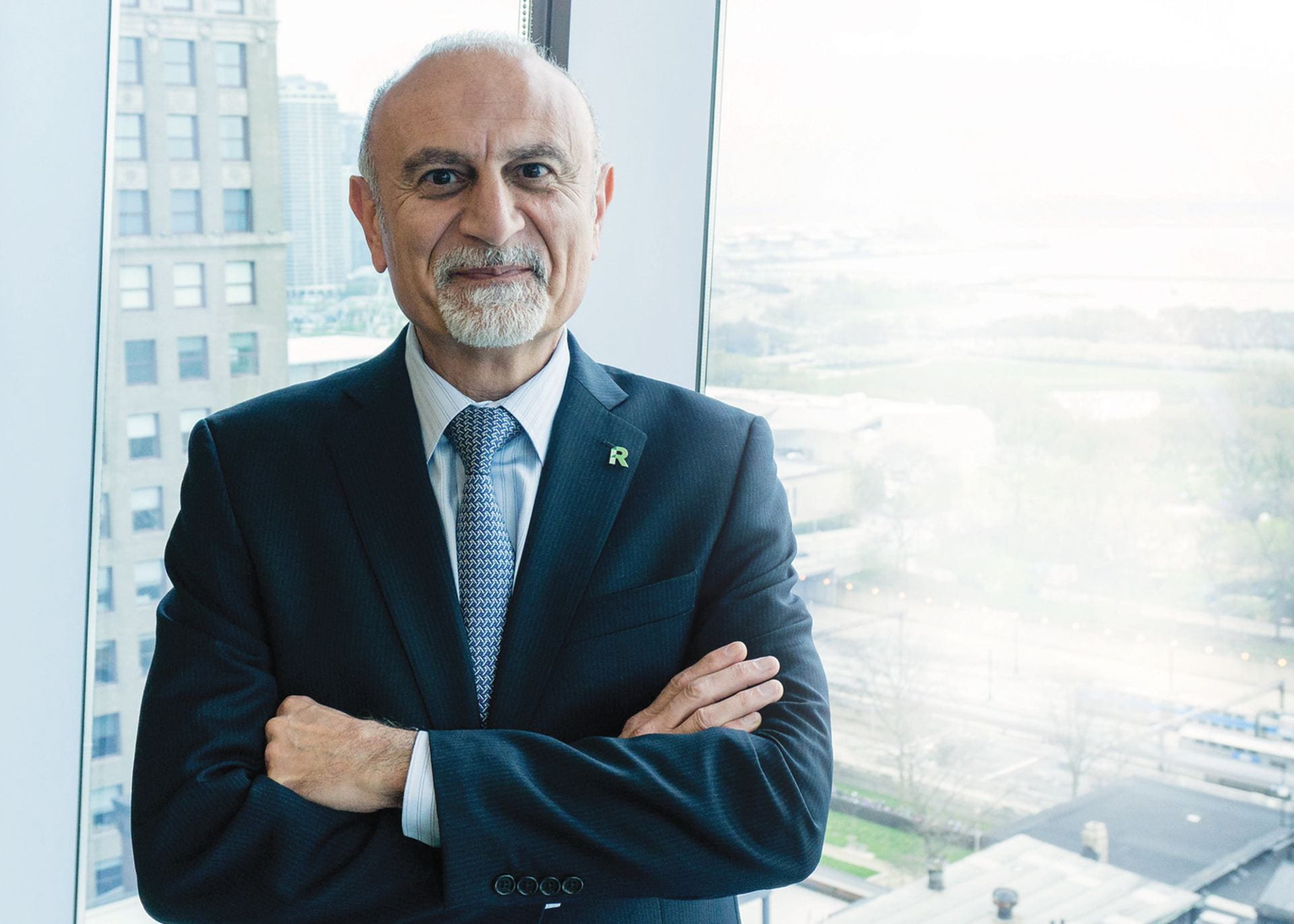President's Perspective
Spring 2021By President Ali R. Malekzadeh, PhD

There is no getting around the fact that we are currently a deeply divided nation. I’m sure we were all horrified when a mob attacked our nation’s Capitol as legislators inside attempted to certify the electoral ballots for the presidency.
In a democracy such as ours, there is perhaps no greater offense to our ideals than an attempt to subvert the legitimate results of a free and fair election. But this is hardly the first time America has been divided. Our nation was almost torn in two during the cataclysm of the Civil War. Abraham Lincoln spoke eloquently about the meaning of union during that time of division, and his words can still serve as consolation and inspiration today.
On the battlefield of Gettysburg, he gave the Gettysburg Address, one of the great presidential speeches in our history. Lincoln and the nation had much to mourn at Gettysburg, and we also have much to mourn.
Too many taken too soon because of COVID-19. In addition to the hundreds of thousands of deaths, the virus has laid bare the systemic inequality that afflicts the nation. We have had to witness too much political hatred and political violence.
And that is leaving aside the many long-term issues that remain unaddressed — a more generous safety net for all Americans, a higher minimum wage, better health care, greater access to education, more robust protections for the environment, humane immigration policies, to name only a few of the pressing issues facing America.
We may disagree about the particulars of what should be done, but the vast majority of Americans would agree that something needs to be done.
Even as I list the problems facing us, though, I am inspired by Lincoln’s example at Gettysburg. He did not give way to despair. He looked out across his audience and called on them to dedicate themselves “to the unfinished work which they who fought here have thus far so nobly advanced.”
That unfinished work is now our burden — and our privilege — to bear.
And what is that meaning? Lincoln ended his great speech by looking forward. He called for “a new birth of freedom” and despite the Civil War still raging, he promised that “government of the people, by the people, for the people, shall not perish from the earth.”
We must make a similar commitment to a new birth of freedom, and seeds of hope are already being planted.
In this issue, you will read about Professor Norbert Cordeiro’s research to restore Tanzanian forests after centuries of deforestation. You will read about how psychology alumna Melisa Alaba is helping women of color heal from old trauma. And you will read about many other Roosevelt students, faculty and alumni who are rising to today’s challenges.
This is just the beginning. All of us at Roosevelt University must take up this unfinished work. We must embrace the struggle to ensure liberty and justice for all.
I know this will not be easy, but great things never are.
Think of the daunting challenges Lincoln and the nation faced during the Civil War. Yet they succeeded, despite all the hardship they had to bear. It is up to us to make sure that we succeed again — that we help move this nation a little closer to our ideal of social justice, that we strive to make this world a better place than we found it.
I can think of no better moment and no better group of people to take up this task.
Please do not hesitate to let me know your thoughts and ideas about Roosevelt University.
Write me at president@roosevelt.edu. As always, I look forward to hearing from you.
More in this section
Tomorrow’s Health Care Leaders
The new College of Science, Health and Pharmacy will help students fill critical roles as socially conscious and compassionate health care providers, researchers and experts.
A Movement, Not a Moment
The Black Lives Matter protests this summer stirred a wave of promises from organizations in support of racial equity. Here’s how Roosevelt University is living up to our social justice mission.
Tipping Point
In July, a group of attorneys filed a civil lawsuit on behalf of George Floyd’s family, including the firm where Mirena Fontana (BPS ’12) is a senior paralegal. Here’s how she fortifies the case for police misconduct victims.




